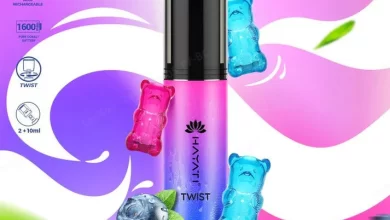Mexico Tequila Market: Exploring Heritage, Flavor, and Global Impact
The Mexico tequila market holds a significant position in the global spirits industry, renowned for its rich cultural heritage, distinctive flavors, and centuries-old tradition of agave cultivation and distillation. This article provides an in-depth exploration of the Mexico tequila market, covering its history, production processes, classifications, market trends, key players, and future outlook.
Market Overview
In 2023, the Mexico tequila market reached a value of approximately USD 582.12 million. The market is estimated to grow at a compound annual growth rate (CAGR) of 5.10% between 2024 and 2032, reaching a value of USD 910.84 million in 2032. This growth trajectory reflects the enduring popularity of tequila both domestically and internationally, driven by evolving consumer preferences, expanding distribution channels, and increasing demand for premium and artisanal varieties.
History
Tequila, derived from the blue agave plant (Agave tequilana), has deep roots in Mexican history and culture. The production of distilled spirits from agave dates back to pre-Columbian times when indigenous peoples fermented agave sap to create a potent alcoholic beverage known as pulque. With the arrival of Spanish conquistadors in the 16th century, distillation techniques were introduced to the region, leading to the development of what is now recognized as modern tequila.
Production Processes
The production of tequila involves several intricate processes, beginning with the cultivation and harvesting of blue agave plants. The heart of the agave, known as the piña, is harvested and roasted to convert starches into fermentable sugars. The cooked agave is then crushed to extract its juices, which are fermented and distilled to produce tequila. Depending on the type of tequila being produced, the spirit may undergo additional aging in oak barrels to impart flavor and character.
Classifications
Tequila is classified into several categories based on aging and production methods:
- Blanco (Silver or Plata): Unaged tequila, typically bottled shortly after distillation, known for its clear appearance and vibrant agave flavors.
- Reposado: Aged tequila, aged in oak barrels for a minimum of two months and up to one year, acquiring a smoother taste and subtle oak influence.
- Añejo: Extra-aged tequila, aged in oak barrels for a minimum of one year and up to three years, exhibiting rich flavors of caramel, vanilla, and spice.
- Extra Añejo: Ultra-aged tequila, aged in oak barrels for a minimum of three years, offering complex flavors and a velvety smoothness akin to fine cognac or whiskey.
Market Trends
Several trends are shaping the Mexico tequila market:
- Premiumization: There is a growing demand for premium and ultra-premium tequilas, driven by discerning consumers seeking high-quality, handcrafted expressions with unique flavor profiles and artisanal production methods.
- Global Expansion: Tequila has gained popularity beyond its traditional markets, with increasing consumption in regions such as the United States, Europe, and Asia. This expansion is fueled by effective marketing campaigns, celebrity endorsements, and a growing appreciation for Mexican culture and cuisine.
- Sustainability: The tequila industry is increasingly focused on sustainability initiatives, including agave cultivation practices, water conservation efforts, and waste management solutions, to mitigate environmental impact and ensure the long-term viability of agave ecosystems.
- Innovation: Tequila producers are innovating with new expressions, flavors, and packaging formats to cater to evolving consumer preferences and differentiate their brands in a competitive market landscape. This includes flavored tequilas, ready-to-drink (RTD) cocktails, and limited-edition releases.
Key Players
The Mexico tequila market is characterized by a diverse array of producers, ranging from large multinational corporations to small-batch artisanal distilleries. Some of the leading players in the market include:
- Jose Cuervo: One of the oldest and most renowned tequila brands, with a rich heritage dating back to 1758, known for its iconic Especial, Reserva de la Familia, and Tradicional expressions.
- Patrón Tequila: A premium tequila brand celebrated for its handcrafted production methods, luxury packaging, and ultra-premium offerings, including Patrón Silver, Reposado, and Añejo.
- Sauza Tequila: A historic tequila house founded in 1873, offering a diverse portfolio of tequilas ranging from entry-level to premium expressions, catering to a wide range of consumer preferences.
- Herradura Tequila: Renowned for its authentic, estate-grown agave and traditional production techniques, Herradura produces a range of high-quality tequilas, including Herradura Blanco, Reposado, and Añejo.
- Olmeca Tequila: Known for its innovative approach to tequila production, Olmeca offers a selection of award-winning tequilas crafted with highland and lowland agaves, appealing to both connoisseurs and casual drinkers.
Future Outlook
The Mexico tequila market is poised for continued growth and innovation, driven by increasing global demand, expanding distribution channels, and a focus on premiumization and sustainability. As consumers seek authentic, high-quality spirits with compelling stories and unique flavor experiences, tequila is well-positioned to maintain its status as a beloved and iconic spirit both in Mexico and around the world.


